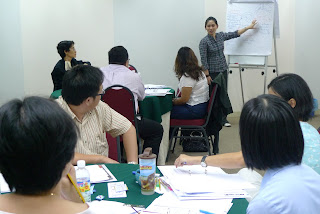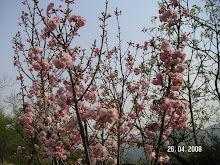

 Thought for today.
Thought for today."Education is what survives when what has been learnt has been forgotten".
B.F. Skinner.(Education in 1984)
Recent newspaper reports on the teaching of Science and Mathematics in Chinese schools, have generated interesting feedback from readers and concerned parties. The Ministry of Education is interested to know the magic formula used in these schools. The Director-General of education has been directed to investigate into this. He is going to identify the "good" schools to study the teaching and learning approaches used and will implement these best practices next year.
What are some of these appropriate approaches which will be identified by the officers in their study? Some views expressed in the newspaper include rote memory of multiplication tables, detailed and clear explanations by the teachers, and a lot of homework and practice. But the most relevant are the views expressed by a Mathematics teacher Ms Cheah Yin Hong ...." I teach them how to connect Mathematics to their daily lives and how to apply it. " She also added that more research must be done by the Ministry before emulating the methods used in Chinese schools. An important consideration adds Ms Cheah ..."Is our teaching just different from the aspect of the mother tongue? Does the language affect the students' ability to focus and absorb the knowledge?"
In a recent workshop on the evaluation of teaching and effective teaching practices, particpants emphasized two important issues. The first is the need to select teaching approaches and activities based on the learning outcomes instead of focus on just the topic to be taught. Ms Koshila from TAR College shared that getting students hands-on and with close monitoring her students have no problems achieving the learning outcomes. Ms Cheng Wei Fong, also from TAR college emphasized that giving students feedback on their performance have enabled them to improve.
Secondly, to ensure that the learning outcomes are achieved, teachers are encouraged to use cognitive strategies to maximise learning on the part of the students. Ms Sheila from UCS Institute Excecutive, Sarawak explained that some of these strategies include spatial strategies, mnemonics, analogy, and advanced organisers. Twinkle Anak Bati added that rehearsal activities, such as role play, simulation, and group work will increase learning.
Some food for thought on the teaching of Science and mathematices include investigating into the appropriate teaching methods to use and more importantly is the monitoring of what really goes on in the classroom,. We cannot fault the manufacturer of a fast car if the driver does not know how to drive it properly!!!

No comments:
Post a Comment